The Representation Agreement and the Proverbial Bus
Managing our own or a loved one’s health care requires personal fortitude, especially when the situation is unexpected…
My passion in my Notary practice is to help people with their personal planning that includes Powers of Attorneys, Representation Agreements, Advance Health Directives, and Wills.
In particular, my value to my clients is that I know from personal experience the power a Representation Agreement can play in each and every family.
Managing our own or a loved one’s health care requires personal fortitude, especially when the situation is unexpected and there is no option to hear from the loved one what he or she would want as care or health interventions.
A Representation Agreement is done pursuant to the Representation Agreement Act in British Columbia. A Representation Agreement authorizes someone to make health care and personal care decisions on your behalf when you can’t make your own decisions. The Representation Agreement Act section 1 defines “Personal Care.”
Under that law, people are presumed to have capacity to make their own decisions unless it’s obvious they don’t or are determined by diagnosis not to have capacity. A person with full capacity can
make an agreement, drawn up by a BC Notary or lawyer, where the person appoints one or more representatives to act on his or her behalf. Typically, representatives are close family members, but not always.
My 54-year-old brother is an example of a person suddenly having zero capacity to make health decisions about himself and the need to have someone else make decisions for him. He was found barely conscious by a friend just days before Christmas. At the hospital, he went into cardiac arrest and fell into a coma with multiple organ failure.
There are two types of Representation Agreements.
- A person with full capacity can make a section 9 Non-Standard Representation Agreement.
- A person with reduced capacity can make a section 7 Standard Representation Agreement.
Section 9 Representation Agreements
The section 9(1) Non-Standard Representation Agreement sets out what a Representative may be authorized to do.
Section 9(2)(a) states that unless expressly provided for in a Representation Agreement, a representative must not give or refuse consent on the adult’s behalf to any type of health care prescribed
under section 34(2)(f) of the Health Care (Consent) and Care Facility (Admission) Act.
In section 9(3), if a representative in a section 9 Representation Agreement is provided the power to give or refuse consent to health care for the adult, the representative may give or refuse consent to health care necessary to preserve life.
The basic scope of powers granted to a representative under a section 9 Representation Agreement includes making major health decisions about surgeries, resuscitation, life support, cancer treatments, laser treatments, kidney dialysis, and anything else deemed major by the regulating authority. Personal care decision-making about what you eat or wear, your driver’s licence,
your living companions, and your personal contacts is also part of a Representation Agreement.
Your representative must have the capability to act solely for you and not in his or her own interests. A Representation Agreement puts in place the people to act as your representative; that document is the catalyst for important conversations we all need to have with respect to our own future health care. If you are a representative, such decisions must be made with your personal
knowledge about what the person would choose and prefer.
At 51, I have had many upclose-and-personal experiences with health, death, and dying. Those events have given me much wisdom and the ability to connect with my clients as we create documents related to them and their health. We have realistic discussions about both unexpected or expected scenarios that can happen in any of our lives.
None of us has a crystal ball about what our health issues will be or how they will progress. Fast or slow, we truly don’t know. I learned that as a society, we are not well equipped to deal with difficult, sudden, or traumatic events regarding ourselves or a loved one.
Dad’s recent fall confirmed why we need to be prepared with a Representation Agreement and that we need to tell our family what we would want in case the proverbial bus hits us.
Mother’s slow decline to a place she would never have wanted to be with Alzheimer’s taught me to be patient and accepting and to focus on her quality of life in her medical care and day-to-day living. I also used Mom’s Representation Agreement as an advocacy tool for her at times when the system let her down.
My Dad’s Story
This could be any family’s story. It was the first time I had to represent another person and make life and death decisions.
On a deep level, I knew something was wrong. I’d had a happy Sunday night with my two boys making gingerbread houses but, just after 10 pm, I couldn’t settle. My spirit took a 180 that made no sense to me at the time. I was agitated throughout the night. At 7:40 am on December 24, I got a phone call from my oldest brother telling me Dad had fallen down the stairs the night before and
landed on his head on the cement basement floor. He was rushed away in an ambulance and was not expected to live.
That call set in motion a flurry of activity, including hauling my boys out of bed, grabbing a few Christmas presents, and getting on the ferry to Vancouver and then making the difficult drive through snowy passes to the Okanagan Valley. I cried. I cried a lot. I never expected to see Dad alive again.
He lived another 12 days. Those days gave me the biggest insight into our medical system and what happens when our lives do an about-face and we’re thrown into a traumatic event where action is required on behalf of someone we love. Seeing Dad in the Penticton Hospital ICU for the first time, I knew he would never return to the active man I knew and that he would not survive his catastrophic injury.
Dad had no Representation Agreement so there was no designated person to act for him. And, as with many of his generation, he never talked openly about anything health-related. He certainly never spoke about death. He probably had never heard of a Representation Agreement.
Of course, by position in the family, Mom was the obvious person to make health decisions for Dad but her physical health was not great, making it difficult for her to get to the hospital, plus she was in the early stages of cognitive decline.
Hierarchically, the decision-making fell to us four kids. But which one? I realized grief was a new experience for each of my brothers that profoundly impacted them to the core. Grief is a powerful emotion; we can never know how any one of us would be in a given situation. With such clarity, I saw the various stages of Elizabeth Kubler Ross’s grief identifiers in each of my brothers . . .
shock, denial, anger, and false hope.
I could see how grief was crippling them. It’s not to say they wouldn’t have made it through, but they may not have made crucial life-altering decisions in a timely manner. I also recognized I had the skills and experience necessary to make decisions about my dad and one would eventually be an end-of-life decision.
The only evidence I had about how Dad felt about death was what he said about a close friend, “It was a good thing the family pulled the plug on Donnie.” We had had a general discussion about how Donnie would not have wanted to be kept alive on life support. That was a crystal-clear memory for me because Dad never talked about his own death or anyone else’s for that matter. Ever.
Ultimately, my assessment of his condition, his prognosis, and my ability to think critically and manage Dad’s daily care made me the “go to” person for the medical staff; the decisions about Dad’s care fell to me as a temporary substitute decision-maker.
care in the ICU was excellent but, when he stabilized 4 days later, they moved him to a ward. I was his eyes and ears and voice. He could not speak for himself or ask for help as the people in the other beds could. I needed to protect him and preserve his dignity in a way that would allow him to pass from this world. In the end, I had the highest privilege of being with Dad when he died.
***
My own critical health issues 2 years ago forced me to face my fears about dying and took me to a deeper level of understanding the fears we all have. I learned that making a document while you’re severely stressed is not the best time to do it.
Those experiences allow me to pass forward some critical learning and the message that we all should have a Representation Agreement in place.
When a person does not have a Representation Agreement, under our laws a temporary substitute decision-maker can be put in place . . . either an adult appointed by the Court to be a committee of the person under the Patients Property Act or a temporary substitute decision-maker (TSDM) chosen by a health care provider or authorized by the Public Guardian and Trustee.
Temporary decision-makers can be immediate family, friends, neighbours, or any appointee designated or recommended from within the medical system, including the Public Guardian and Trustee. In my experience, that appointment will depend on the information available to health care providers charged with overseeing a patient regarding the natural support people in the person’s life and whether those individuals are available, known, capable, and willing to step up to act.
People can be blinded so much by grief, they cannot make a timely decision. Families can disagree on treatment because old resentments get in the way of their acting responsibly for the adult needing decisions or ongoing care.
Further, the common blended-family scenario presents the additional dimension of spouse vs. adult children making decisions. I know you can muddle through a health crisis, but there is a strong vulnerability where the adult needing care might not end up with the right or the most trusted person in place to make decisions. A Representation Agreement allows you to appoint the appropriate individual.
Note: If there is no Representation Agreement but there is a legally valid Advance Health Care Directive in place that gives or refuses consent to the treatment or health care that is being proposed by the health care provider, the health care provider must follow the adult’s direction as set out in the Advance Health Care Directive.
As a BC Notary, I am trained in the laws surrounding Representation Agreements and Advance Health Care Directives. In part of my process for preparing the documents, I talk in-depth with clients about health care, current health risks, personal values, and how to choose their representative. I inform on the laws pertaining to their health documents. I weave my stories where appropriate to illustrate why appointing legal health representatives is important and how the documents work for the clients.
My advice? All adults should make an appointment to get a Representation Agreement drawn up . . . to prepare while there is no health crisis. That gives the adult and the family the gift of time to think through and plan the routes around health care.
The best scenario is that you have the Representation Agreement document prepared and you never need it. The likelihood is that you will need it at least once. And you and your family will be very glad you have it.
Beverly Carter is a BC Notary practising in Victoria.

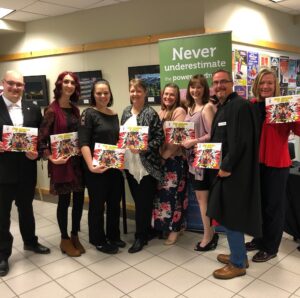
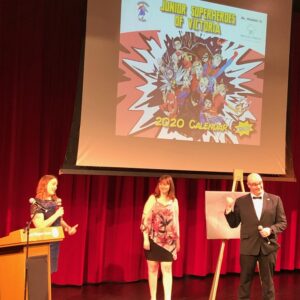
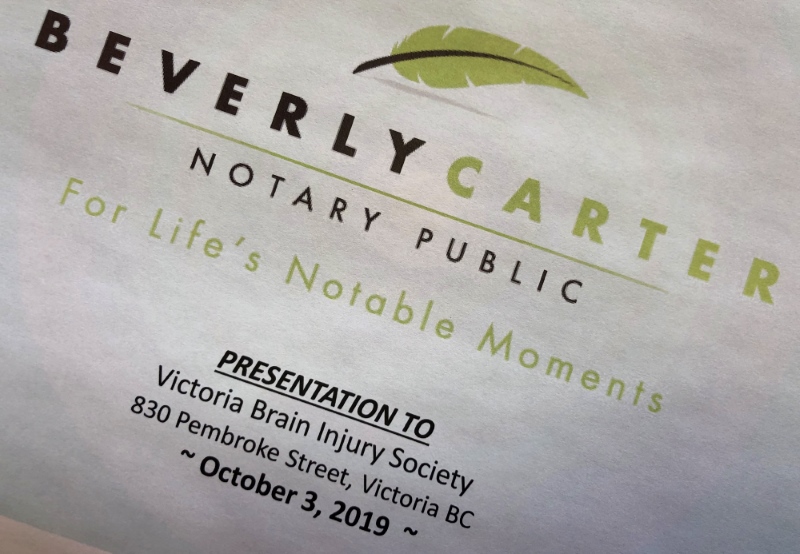
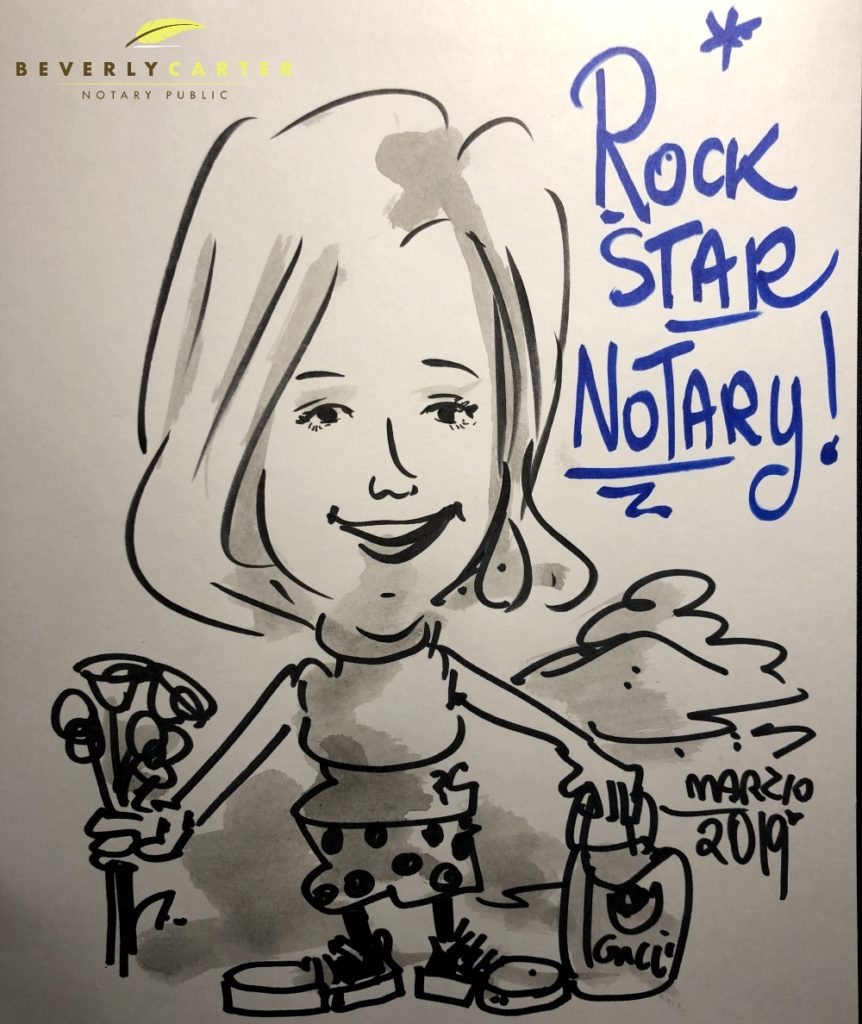
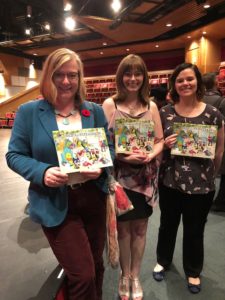 April 7-13, 2019 is Volunteer Appreciation Month and we love being involved with our community.
April 7-13, 2019 is Volunteer Appreciation Month and we love being involved with our community.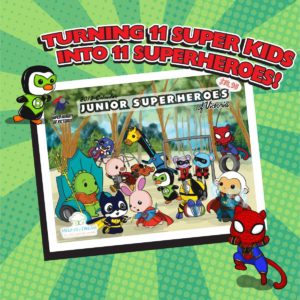 The aim this year is to raise $30,000.00 with the sale of the calendar, enough to provide funds to fulfil three dreams for Vancouver Island children. The production of the calendar is ambitious, but the dedicated Superheroes flex their muscles, imagination, and special talents to make it all come true. In addition to helping select the new Junior Superheroes, Vicky works on the set, and ultimately puts her photo and technical editing skills to develop each child’s final calendar image.
The aim this year is to raise $30,000.00 with the sale of the calendar, enough to provide funds to fulfil three dreams for Vancouver Island children. The production of the calendar is ambitious, but the dedicated Superheroes flex their muscles, imagination, and special talents to make it all come true. In addition to helping select the new Junior Superheroes, Vicky works on the set, and ultimately puts her photo and technical editing skills to develop each child’s final calendar image.